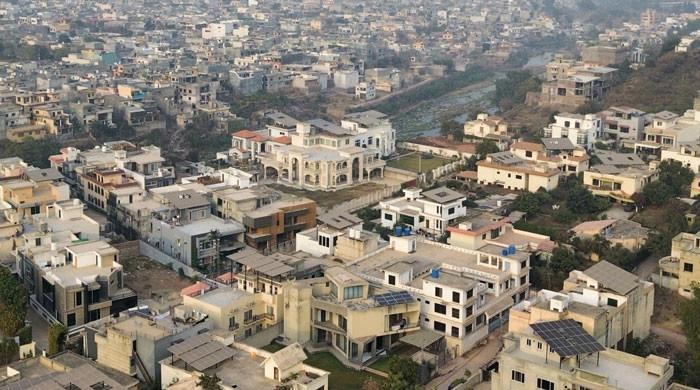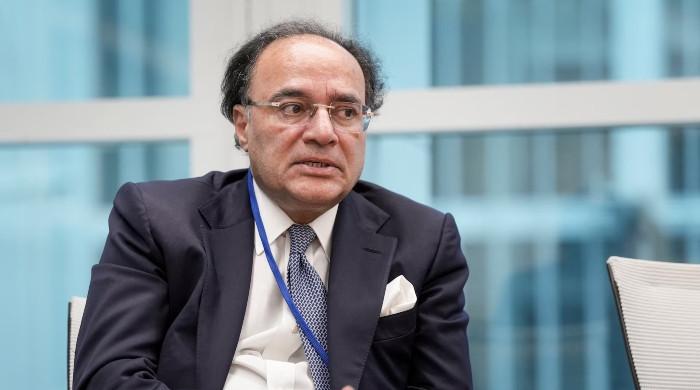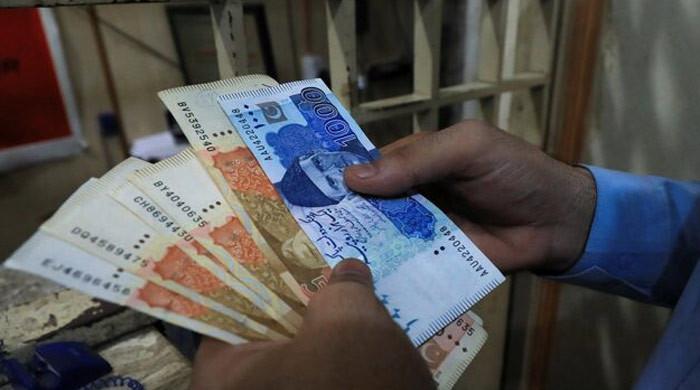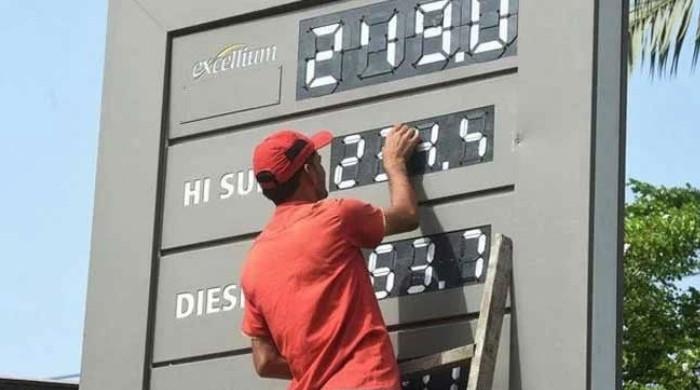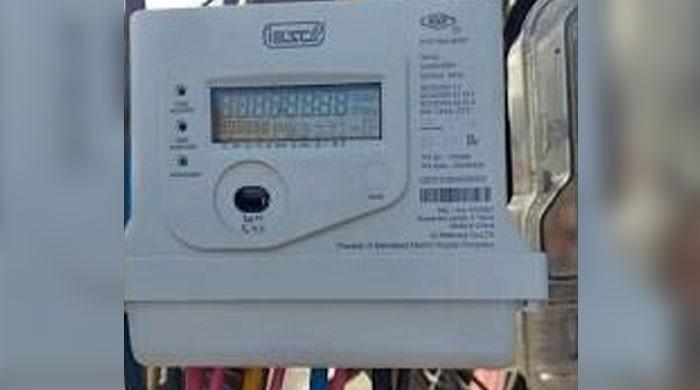Stocks finish shy of 83,000 points as economic optimism grows
Analysts say lower bond yields have made equities more attractive, especially high-dividend yielding stocks
October 03, 2024
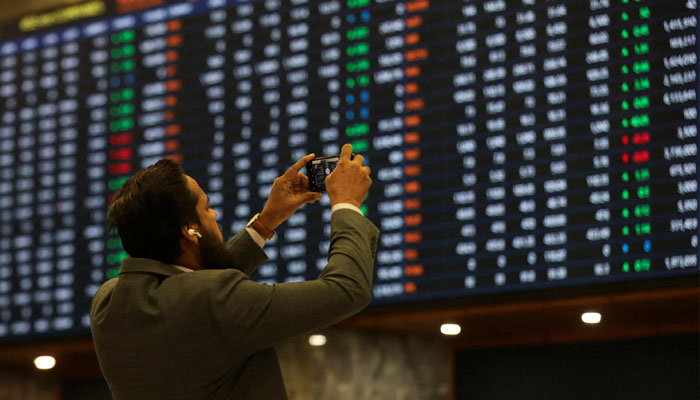
A day after a flat close, stocks jumped on Thursday, testing the 83,000-point resistance level as easing inflation pressures and hopes of further rate cuts, coupled with improving economic indicators, prompted investors to snap up high-yield equities.
Pakistan Stock Exchange's (PSX) benchmark KSE-100 Shares Index gained 754.76 points or 0.92% to close at 82,958.73.
During intraday trade, the market surged by 924.94 points, or 1.13%, reaching a high of 82,958.73 at around 2:06 pm; however, a brief spell of late selling trimmed some early gains.
Khurram Schehzad, CEO of Alpha Beta Core, noted that investors are betting on the State Bank of Pakistan (SBP) extending its hawkish monetary policy as inflation has been steadily declining.
"There are expectations of a policy rate cut of up to 400 basis points by December, as the room for easing exists," Schehzad said, hinting that the SBP’s Monetary Policy Committee (MPC) could revise rates downward before its next scheduled meeting.
The financial analyst added that the current bullish trend could largely be attributed to expectations that this marked the start of the central bank's long-awaited rate-easing cycle, which had also rekindled foreign interest in the country’s capital market.
Stocks edged higher on Wednesday, supported by falling inflation, a stable rupee, and agricultural growth, with the apex index closing at 81,967.01 points, up 162.41 points or 0.2%.
Commenting on this sharp rise, Raza Jafri, CEO at EFG Hermes Pakistan, said lower bond yields were making equities more attractive, especially high-dividend yielding and highly leveraged stocks.
"A significant chunk of foreign supply has also been absorbed, which is giving more confidence to buyers. We expect the market to continue rising, and make new highs," Jafri added.
Consumer Price Index (CPI)-based inflation dropped to 6.9% year-on-year in September 2024, the lowest since January 2021, down from 9.6% in August, driven by the high base effect, easing commodity and energy markets, and a stable currency, according to the Pakistan Bureau of Statistics (PBS).
Last month, the State Bank of Pakistan's (SBP) Monetary Policy Committee slashed the key policy rate by 200bps to 17.5% from 19.5%, citing a steep fall in both headline and core inflation over the past two months.
Investors also gained confidence from SBP Governor Jameel Ahmed's statement that Pakistan's foreign exchange reserves had risen to cover two months of imports, following the receipt of the first tranche from the IMF’s $7 billion Extended Fund Facility (EFF).
In much-needed support for the country’s fiscally-challenged economy, the the central bank received the first tranche of $1.03 billion (SDR 760 million) on Monday, September 30, 2024.
Pakistan had been working on implementing conditions deemed "strict" to complete the loan programme agreed to in July, which Prime Minister Shehbaz Sharif time and again hoped would be Pakistan's last.
The liquid reserves now stand at $10 billion, providing much-needed stability to the country’s foreign exchange position.
“The foreign exchange reserves have stabilised, and we expect further improvements,” Ahmed said speaking at a banking conference.
"[Overseas workers'] remittances have increased, and the supply of dollars has improved," said Ahmed, noting that a decline in inflation has positively impacted monetary policy.
Meanwhile, world stocks dipped as European and Asian share indexes broadly retreated on Thursday, while oil prices rose further as markets weighed the risk of a widening Middle East conflict.
Euro zone stocks were last down 0.8%, as investors digested weak business activity survey data from the bloc, while MSCI's all-country index also slipped 0.2%.
Asia-Pacific shares outside Japan, had earlier shed 1%, largely driven by Hong Kong stocks, sagging after a sizzling rally, while several markets, including mainland China and South Korea, were closed for the day.
Japan's Nikkei bucked the trend, up 2% after the country's newly elected prime minister Shigeru Ishiba said it was not the time to raise rates after meeting the central bank governor Kazuo Ueda.





